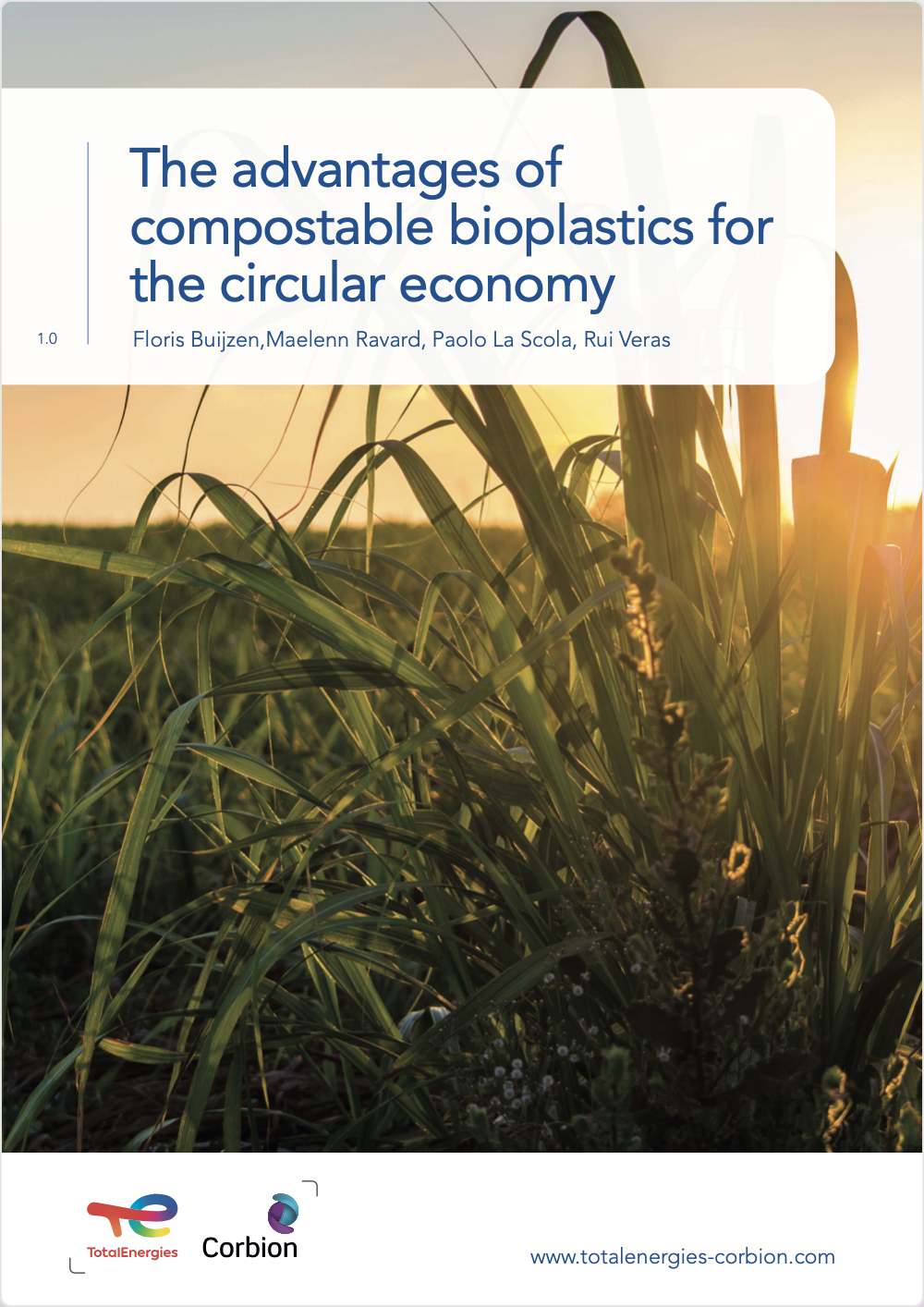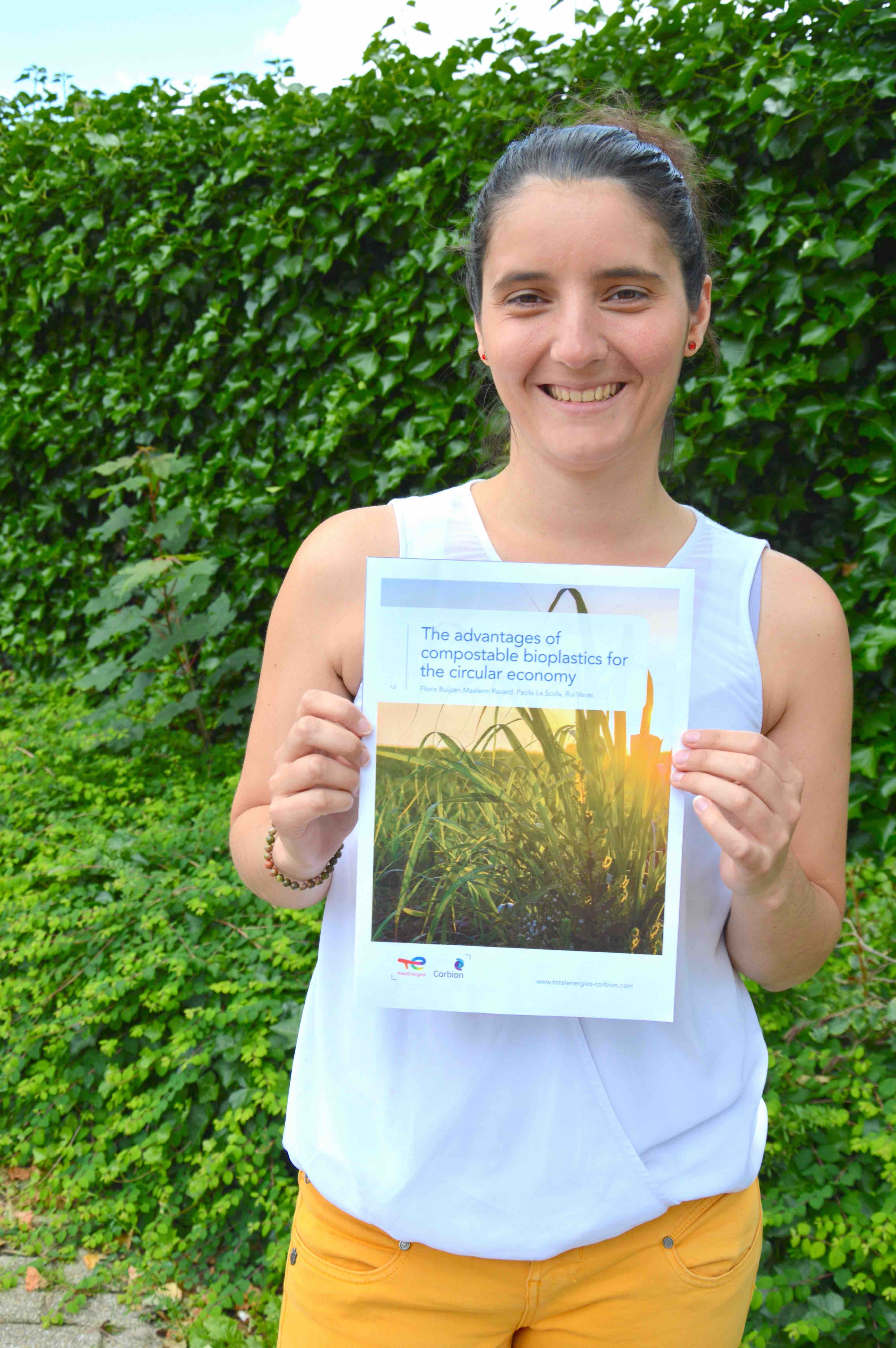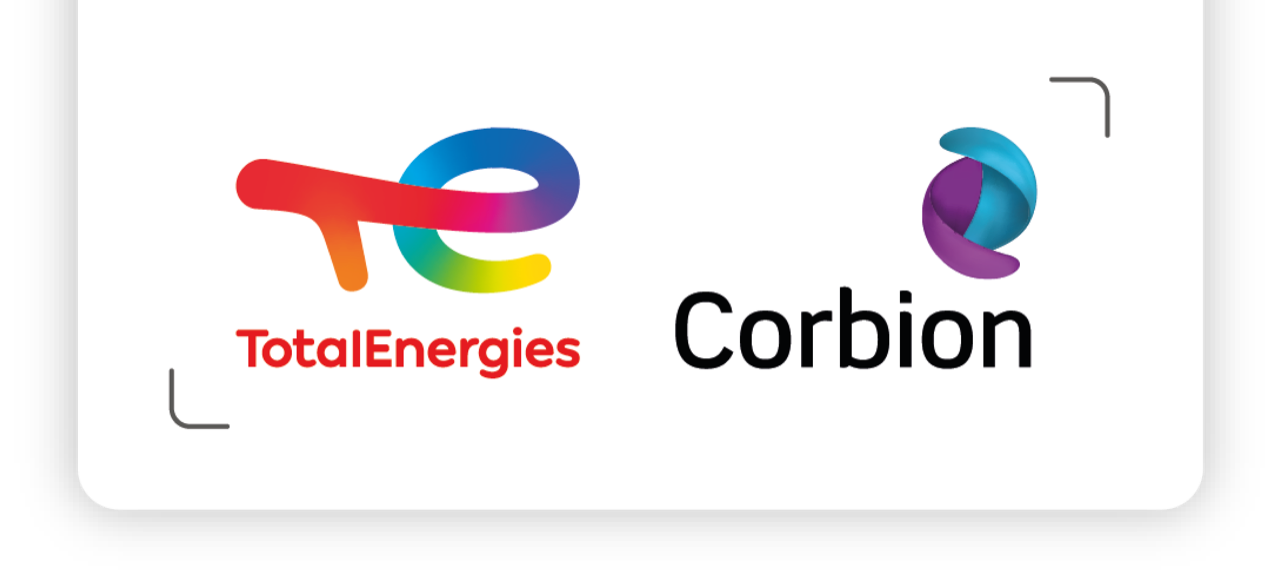
The latest news from the world of Bioplastics
The advantages of compostable bioplastics for the circular economy
TotalEnergies Corbion
TotalEnergies Corbion publishes a report on PLA compostability entitled “The advantages of compostable bioplastics for the circular economy”. The report advises on product design for compostable packaging when it contributes to the diversion of biowaste from landfill or incineration, reduction of the biowaste stream contamination, increasing efficacy of biowaste collection, and when the packaging is hardly separable from its organic waste content.
Building a sustainable economy and reaching the climate neutrality targets, requires innovative materials and improvement in waste management. PLA, a biobased, recyclable, and versatile material, offers an additional, sustainable, and efficient end-of-life option: composting.
Composting is crucial in achieving a sustainable future. With composting, the carbon drawn from the atmosphere during the plant feedstoock growth, is brought back to the soil. Composting also brings nutrients back to the earth, increasing their quality and health without using chemical fertilizers. Composting biowaste mitigates the carbon emissions, as landfilling biowaste emits higher amounts of Green House Gases (CO2, CH4), which contribute to global warming.
Compostable bioplastics offer an alternative to conventional (fossil-based, non-biodegradable) plastic items, which are usually not recycled because of their organic waste content - for instance, teabags, coffee capsules and biowaste collection bags.
Certified compostable bioplastic packaging can be thrown in the biowaste bin with its organic waste content, avoiding landfilling and incineration and reducing contamination of the biowaste stream with conventional plastics.
"Organic recycling plastic packaging, commonly known as composting, is a complementary end-of-life option. It contributes to achieving wider recycling targets, reducing carbon footprint and providing a valuable final product: compost." - states Maelenn Macedo Ravard, Sustainability and Regulatory Manager at TotalEnergies Corbion, and author of the report.
Olga Kachook, Director, Bioeconomy & Reuse Initiatives at GreenBlue, USA, says that "With the clock ticking on climate change, it’s worth celebrating the growing momentum behind composting as a solution and the role that compostable packaging plays in diverting food scraps from landfills".
Plastic packaging will always be required for convenience, hygiene and functionality aspects. Using biobased, compostable bioplastics like PLA fulfils all these criteria and responds to climate challenges while having a reduced carbon footprint and a sustainable end-of-life option. To know more about the advantages of compostable plastics, read TotalEnergies Corbion's new report available at: https://www.totalenergies-corbion.com/about-pla/compostable/

White paper cover: The Advantages of compostable bioplastic for the circular economy.

Author Maelenn Macedo Ravard holds the white paper report.
END PRESS RELEASE
For more information please contact:
|
Senior Marketing & Supply Chain Director M +31 611 716 895 |
About TotalEnergies Corbion
TotalEnergies Corbion (formerly known as Total Corbion PLA) is a global technology leader in Poly Lactic Acid (PLA) and lactide monomers. PLA is a biobased and biodegradable polymer made from annually renewable resources, offering a reduced carbon footprint versus many traditional plastics. The Luminy® PLA portfolio, which includes both high heat and standard PLA grades, is an innovative material that is used in a wide range of markets from packaging to consumer goods, fibers and automotive. TotalEnergies Corbion, headquartered in the Netherlands, operates a 75,000 tons per year PLA production facility in Rayong, Thailand and has recently announced the intention to build a second plant in Grandpuits, France. The company is a 50/50 joint venture between TotalEnergies and Corbion. www.totalenergies-corbion.com
About TotalEnergies
TotalEnergies is a global multi-energy company that produces and markets energies on a global scale: oil and biofuels, natural gas and green gases, renewables and electricity. Our 105,000 employees are committed to energy that is ever more affordable, cleaner, more reliable and accessible to as many people as possible. Active in more than 130 countries, TotalEnergies puts sustainable development in all its dimensions at the heart of its projects and operations to contribute to the well-being of people. www.totalenergies.com
About Corbion
Corbion is the global market leader in lactic acid and its derivatives, and a leading supplier of emulsifiers, functional enzyme blends, minerals, vitamins, and algae ingredients. We use our unique expertise in fermentation and other processes to deliver sustainable solutions for the preservation of food and food production, health, and our planet. For over 100 years, we have been uncompromising in our commitment to safety, quality, innovation and performance. Drawing on our deep application and product knowledge, we work side-by-side with customers to make our cutting-edge technologies work for them. Our solutions help differentiate products in markets such as food, home & personal care, animal nutrition, pharmaceuticals, medical devices, and bioplastics. In 2020, Corbion generated annual sales of € 986.5 million and had a workforce of 2,267 FTE. Corbion is listed on Euronext Amsterdam. www.corbion.com




